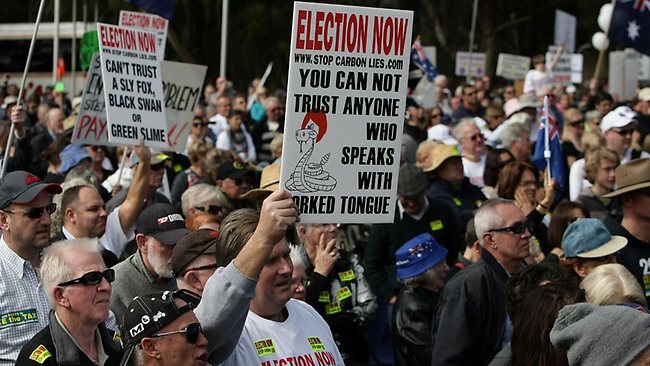South Africa boasts one of the most progressive economies on our continent, and yet continues to break records in income disparities. It is impossible for an outsider to comprehend how the vast wealth flaunted by the industrialists of Kempton Park can possibly coexist with the ‘painful’ poverty of nearby Alexander slums. More pertinent is how a country endowed with so much wealth can declare that much poverty!
Leftist organizations like COSATU – congress of South African Trade Unions – and ANCYL [African National Congress Youth League] have long argued for a system that ‘distributes wealth fairly’. Notice how they avoid the word ‘equally’ because its pursuit is outside the realm of civil society activism. We liberals prefer ‘equal access to opportunity’, which again in South Africa is restricted by the disparity in levels of education and skills. And yet some argue further that had it been state entities like SARS – South Africa Revenue Service – enforce their mandate of distributing revenue ‘fairly’, the problem of poverty would be minimal. I wonder. For good reason.
South Africa’s much vaunted economic dominance has afforded it membership in some of the most exclusive clubs like the G20. But this comes with a price – compliance with ‘world causes’ – nuclear non-proliferation and stringent emission control. The much debated issue of carbon taxation falls squarely within this paradox of grassroots reality versus global expectations. As far back as year 2010, Finance Minister, Pravin Gordhan decreed that his country would impose carbon tax by the end of that year. I see this not in the context of wealth equalization, but merely pondering to the whims of global capital.
Carbon tax is a levy ‘imposed’ on the carbon content fuels – which include petrol, diesel, aviation fuel and coal. South Africa has toll manufacturing agreements for global market leaders like Mercedes Benz, Volkswagen and Toyota, thus one would expect leftist economists to celebrate the new-found wealth for the country’s poor. While some analysts say with a tax rate of US$25 per ton carbon dioxide, the government will access tenbillion US dollars per annum from carbon tax; othersargue that carbon taxes are regressive since they disproportionately affect Alexander-type citizens. At the time when Mr. Pravin and his cabinet colleagues were eying the windfall resulting from their country hosting COP17, carbon taxing would have been motivated by diplomacy rather than fiscal prudence.
I am not sure to what extent RSA has ratified and domesticated the UN Framework Convention on Climate Change, but one would need to question why, if carbon tax is as good for pollution control as it is for ‘sharing wealth’, why G20 club mates USA, Russia and China resist it so much. Therein lies its fallacy. Politicians have reason to worry, especially the ANC, facing possible elections in 2012, have to justify why the Alexander poor have to vote for the party in the face of such poverty. Once the excitement of COP17 abated in 2011, Jacob Zuma would not want to go to the elective conference in Mangaung, December 2012 with stinky fiscal baggage in his boot!
South Africa is one of the biggest polluters in Southern Africa given its appetite for coal-powered turbines. Any tax SARS imposes that strains the profit margins of energy companies has far reaching implications on the country’s capacity to satisfy an already under performing sector. President Jacob Zuma promised to create one million jobs four years ago, yet his G20 club-mates argue that compliance to carbon tax regulations stifles jobs. Thus, balancing local political demands and global expectations will certainly expose him to leftist ridicule.
I also insist the causes RSA generally identifies with, if not outright self-defeating, are shamelessly hypocritical. In a bid to preserve Chinese billion dollar investments, Jacob Zuma violated the ANC code of freedom of movement by refusing the Dalai Lama a visa to Nobel Laureate Desmond Tutu’s birthday. China imposes ‘fiscal death penalty’ on countries that infringe its paranoid ‘one China policy’. Thus it may not occur to Mr. Zuma whether or not imposing carbon tax during ‘election year’ is prudent until he comes face-to-face with political reality. The so-called benefits of carbon tax – oversight of the tax by the existing revenue authority; fewer players involved and therefore lower cost; simpler structure; lower administrative burden; minimized anti-pollution lobbies – pale in significance compared to pre-electoral vilification.
If China, one of the leading exporters on the planet, can ignore carbon tax compliance without loss of credibility, South Africa need not bother. NAAMSA’s David Powell [National Association of Automobile Manufacturers of South Africa] argues that carbon tax will dent his industry’s potential to create more jobs. Instead of punishing car manufactures and consumers, he proposes investment in green fuels to reduce emission. Car exports contribute substantially to RSA’s balance of payments, hence Mr. Powell’s anxiety. Analyst Graham Terry cautions how ‘businesses that want to be competitive and indeed remain in business will need to start adapting their business models for the carbon-constrained world sooner rather than later’.
Juggling sustainability, politics, job creation and price competitive interests is something South African authorities will have to lose sleep on. The prospects of exports being banned because of non carbon compliance may seem real, but as long as other G20 members do not seem fazed, Mr. Zuma can relax. Southern Africa is a major enabler of South Africa’s industrialization. I do not foresee a scenario where these ‘poor’ neighbours can use carbon-content carbon emission as a basis for trade! Duane Newman may argue that the ‘investor-driven carbon disclosure project’ will be the ‘in thing’ a future trade relations, but for the citizens of Alexander, any law that does not bring food to the table is a preserve of excitable CO17 environmentalists.
Rejoice Ngwenya, COMALISO, Harare, 26 January 2012


